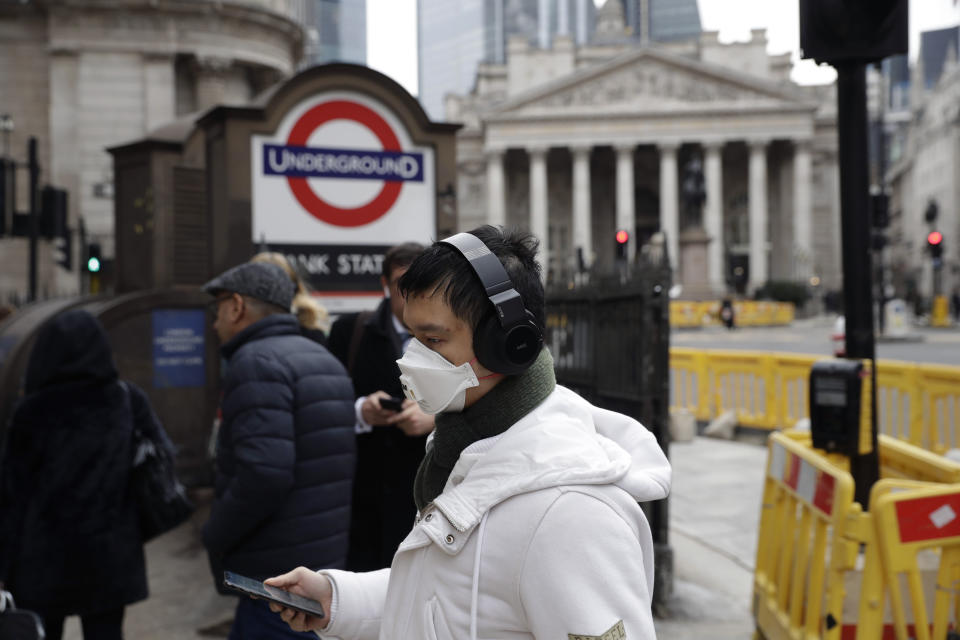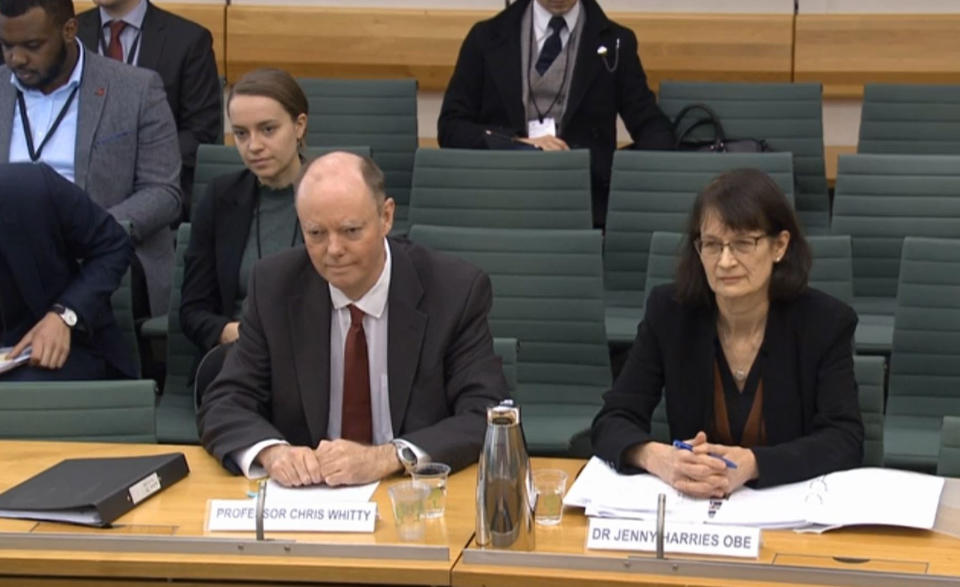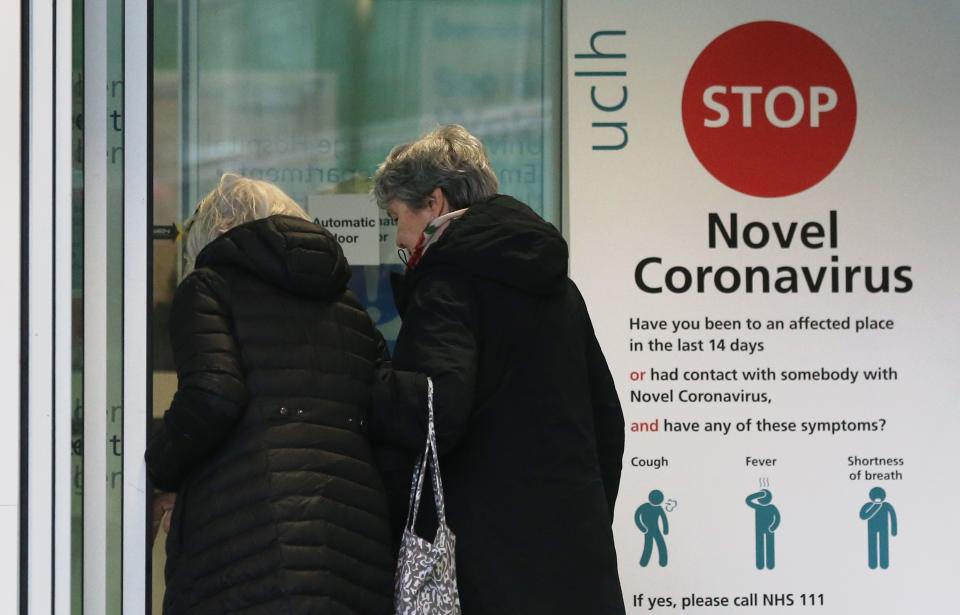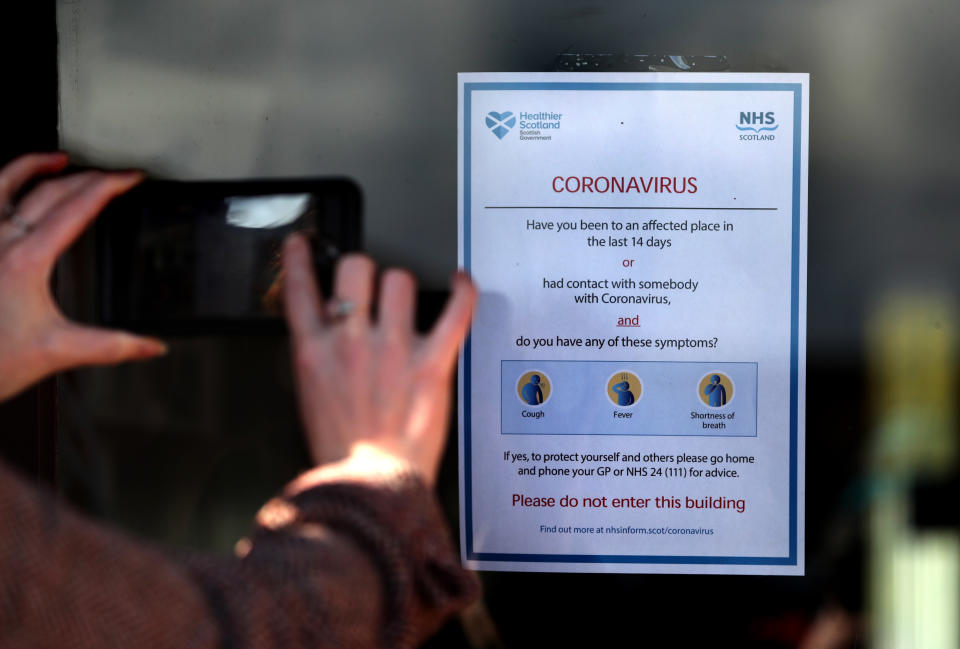Coronavirus deaths in the UK could reach 'large absolute number', chief medical officer warns
Deaths from coronavirus in the UK could reach a “large absolute number”, the chief medical officer has warned.
Speaking at the Commons' Health and Social Care Committee on the day it was confirmed cases of Covid-19 in the UK reached 90, Professor Chris Whitty outlined the impact a larger outbreak could have.
He said deaths from Covid-19 could be a "very small number" as a proportion but a "large absolute number".

See latest coronavirus news and updates
He said he had a "reasonably high degree of confidence" that 1% is at the "upper limit" of the mortality rate for coronavirus.
The impact on the health service would be most sharply felt over a period of around three weeks to nine weeks at the height of the epidemic.

Whitty said: "For those people who get the disease severe enough to need hospital but not severe enough, fortunately, to kill them, they will still need NHS and health care.
The period at the height of the epidemic would mean the NHS has "huge pressure on it for a relatively short period of time".
Delay phase
Whitty said that the UK has now mainly moved into the "delay phase" of tackling coronavirus, adding that there was evidence of community transmission between people who had no connections to overseas cases or returning travellers.
He said: "We have moved from a situation where we are mainly in contain, with some delay built in, to we are now mainly delay," he said, although elements of the contain process were remaining in place.
Read more: Parliament ‘could shut down for five months’ in effort to combat coronavirus
The delay phase means measures to tackle coronavirus are ramped up to delay its spread.

Push back
Whitty said the delay phase was aimed at pushing back the peak of the epidemic which could move the peak of cases away from the "winter pressures on the NHS in all four nations of the UK".
It would also allow more time for research into the nature of the Covid-19 virus and, thirdly, there was a possibility that – as with flu and colds – there could be a seasonal element which meant the rate of transmission went down.
Read more: Plan for suspected coronavirus patients to see their GP by video link
Whitty said there would not be a "step move" from the contain phase to the delay phase but "we are putting greater and greater priority on the elements of this which are delay".

Chances of a vaccine
Whitty said it would be "lucky" to get a vaccine for Covid-19 in the next year, adding: "It is important to develop because it may then become important if this continues to circulate in society, which I think there is a high chance it will, but I think we need to be realistic."
However, he suggested that existing drugs could play a role in treating the illness.
Read more: Stop kissing in public to prevent coronavirus spreading
He said "Can we find drugs which we have got a licence for, we know the safety, they are widely available and which work against this virus?
"The answer, I think, is going to be yes. They won't necessarily be perfect drugs but they may be enough to improve the outcomes for the people in the most high-risk groups."


Transmission
Asked about transmission, Whitty said there is "some risk of transmission" from touching handrails and hard surfaces for up to 72 hours.
But he said: "Just touching it will not give you the virus: it is if you touch it and then touch your face, having not washed your hands between them.”

Whitty suggested that mass school closures may only have a limited impact on the spread of the virus, but it would be for ministers to make the "quite difficult judgement" on whether to order headteachers to shut down.

 Yahoo News
Yahoo News 

